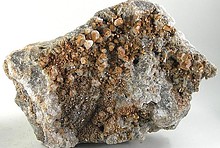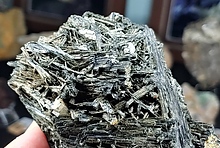Home PageAbout MindatThe Mindat ManualHistory of MindatCopyright StatusWho We AreContact UsAdvertise on Mindat
Donate to MindatCorporate SponsorshipSponsor a PageSponsored PagesMindat AdvertisersAdvertise on Mindat
Learning CenterWhat is a mineral?The most common minerals on earthInformation for EducatorsMindat ArticlesThe ElementsThe Rock H. Currier Digital LibraryGeologic Time
Minerals by PropertiesMinerals by ChemistryAdvanced Locality SearchRandom MineralRandom LocalitySearch by minIDLocalities Near MeSearch ArticlesSearch GlossaryMore Search Options
The Mindat ManualAdd a New PhotoRate PhotosLocality Edit ReportCoordinate Completion ReportAdd Glossary Item
Mining CompaniesStatisticsUsersMineral MuseumsClubs & OrganizationsMineral Shows & EventsThe Mindat DirectoryDevice SettingsThe Mineral Quiz
Photo SearchPhoto GalleriesSearch by ColorNew Photos TodayNew Photos YesterdayMembers' Photo GalleriesPast Photo of the Day GalleryPhotography
╳Discussions
💬 Home🔎 Search📅 LatestGroups
EducationOpen discussion area.Fakes & FraudsOpen discussion area.Field CollectingOpen discussion area.FossilsOpen discussion area.Gems and GemologyOpen discussion area.GeneralOpen discussion area.How to ContributeOpen discussion area.Identity HelpOpen discussion area.Improving Mindat.orgOpen discussion area.LocalitiesOpen discussion area.Lost and Stolen SpecimensOpen discussion area.MarketplaceOpen discussion area.MeteoritesOpen discussion area.Mindat ProductsOpen discussion area.Mineral ExchangesOpen discussion area.Mineral PhotographyOpen discussion area.Mineral ShowsOpen discussion area.Mineralogical ClassificationOpen discussion area.Mineralogy CourseOpen discussion area.MineralsOpen discussion area.Minerals and MuseumsOpen discussion area.PhotosOpen discussion area.Techniques for CollectorsOpen discussion area.The Rock H. Currier Digital LibraryOpen discussion area.UV MineralsOpen discussion area.Recent Images in Discussions
GeneralChemical name reference

9th Oct 2018 01:36 UTCJeff Joy
For example if I typed in ‘manganese oxide’ I would hopefully get back those minerals for which this compound is the constituent molecule. Of course there may be many oxides as well as polymorphs, etc which creates many targets but that’s the point. I may ‘think’ that I know what the results would be, but may be surprised by the actual results.
Again using this example, a use of this information might include exhaustive exploration of manganese-rich sites for undiscovered species, knowing that a complete list with photos was at hand as a starting point.
Other uses of this ‘reverse lookup’ come to mind, such as as when you simply can’t recall the proper name of a mineral but can describe it in IUPAC terms.
Public thoughts welcomed here.

9th Oct 2018 02:07 UTCDoug Daniels
Manganese carbonate would definitely be simple. But, think about the silicates - can you come up with a simple chemical name for a tourmaline, an amphibole, a zeolite? How you might name the compound, and how it would potentially be written into the database, may be two different things, so you would likely miss some potential matches.

9th Oct 2018 05:07 UTCErik Vercammen Expert

9th Oct 2018 14:20 UTCBenjamin Oelkers
Maybe something a little more in line with the original idea: How about a search function that allows for usual chemical entities (e.g., ions)? What I mean by that is that you would put in "manganese oxide" as stated above, and get all minerals containing manganese (in cationic form) and oxide (O2-), but not silicates, phosphates, etc. While this result can be obtained by tweaking the search via elements (e.g., exclude Si and P), it would indeed be helpful to get something like that in a simple way.
In principle, a similar mechanism to the search via elements could be used by adding buttons with O2-, OH-, CO32-, SO42-, etc. However, this would need the relevant structural data to be parsed/extracted from a "good" chemical formula or name... Maybe the IMA's chemical formula is a good candidate for this?
9th Oct 2018 21:53 UTCKeith Compton 🌟 Manager
I'm not quite sure what you are after but have you tried searching via using the periodic table to find what you are after?
Go to the top search bar then select the "More" button, then select the "The Elements" button.
Select the element from the Periodic Table that you are interested in and the elements that you want associated in the formula and work your way through them.
It is a neat way of searching and also learning about minerals in a different way.
Cheers
9th Oct 2018 22:01 UTCKevin Conroy Manager
9th Oct 2018 22:05 UTCKeith Compton 🌟 Manager
At least the pub would have "BeEr" and "WINe" of course :-))
Cheers

9th Oct 2018 22:12 UTCDoug Daniels

9th Oct 2018 22:47 UTCJeff Joy

9th Oct 2018 23:57 UTCAlan Pribula
10th Oct 2018 00:00 UTCJeff Weissman Expert

10th Oct 2018 00:00 UTCAlfredo Petrov Manager

10th Oct 2018 01:02 UTCDoug Daniels

10th Oct 2018 01:56 UTCJeff Joy
To respond to Doug’s initial reply, a query on ‘manganese oxide’ should rightly exclude ‘manganese hydroxide’ as it is a different species. This is just the point of the current search by element function’s dilemma, and why I made this posting. If I were to search on both Mn and O the results include a huge list inclusive of all species with these elements. A proper result for this search indeed, but not the one I desire if I ask for all minerals containing the chemical formula ‘manganese oxide’. There are only maybe four proper chemical combinations of manganese and oxygen that fit this description and that naturally occur as minerals, and I would wish only these to be reported as the desired results.
To Benjamin’s points, query by the ionic and valence states and then dealing with the ones that are non-ionic/covalent seems to be a complex methodology. However - hitchhiking on this notion, one might deviate from pure IUPAC nomenclature and use familiar mineral terms where commonly agreed. For example it may be sufficient to describe SIO4 as ‘Silicate’ as a practical matter. This can then be extended to alumosilicates, beryllosilicates, borosilicates and so forth so as not to dig deeper than needed while describing sufficiently to differentiate say, tourmalines from of zeolites.
Yes, a God of chemical nomenclature will have to rule for a time as initial names are handed out but of course the bulk of work is one-time, with new species being relatively rarely named.
[edit] Hey’s Mineral Index looks to have the right balance between detail and simplicity when constructing a named query. So for ex. if one queried ‘Fe’ and ‘aluminosilicate’ one should properly get ‘Almandine’ as a response. While “Iron Aluminosilicate” is not a real chemical compound name, it follows the idea of using ‘shorthand’ for mineral names.

10th Oct 2018 02:27 UTCMichael Hatskel
In many cases, the Hey's Classification works just fine for me. For your particular example with MnOx / MnOHx, category 7.18.3 should work.
When using the 'Minerals by Chemistry' search, I found it helpful to first select the "Elements to Include" and the "Mineral Class", then play with the "Essential Elements Only?" field, and then, if necessary to further polish the search results, add the "Elements to Exclude".
Regards,
Michael
10th Oct 2018 10:47 UTCDavid Von Bargen Manager
When you are looking for things like sulfates or carbonates, you would need to get into the various classification systems around (but they are not being kept up)
Search for just Mn and O

11th Oct 2018 03:21 UTCJeff Joy
I had hoped for an easy one step query by name with results that matched just that formula (or description).
Well, we’ve beaten this horse about as far as he will go, so it’s time to quit, but thanks for playing, and will see you all next time around ;-)
11th Oct 2018 11:09 UTCDavid Von Bargen Manager
11th Oct 2018 11:54 UTCJolyon Ralph Founder
So things like Manganese III Oxide for Bixbyite.
These become useful when trying to track down synthetic analogues of these compounds.




Mindat.org is an outreach project of the Hudson Institute of Mineralogy, a 501(c)(3) not-for-profit organization.
Copyright © mindat.org and the Hudson Institute of Mineralogy 1993-2024, except where stated. Most political location boundaries are © OpenStreetMap contributors. Mindat.org relies on the contributions of thousands of members and supporters. Founded in 2000 by Jolyon Ralph.
Privacy Policy - Terms & Conditions - Contact Us / DMCA issues - Report a bug/vulnerability Current server date and time: April 16, 2024 06:47:15
Copyright © mindat.org and the Hudson Institute of Mineralogy 1993-2024, except where stated. Most political location boundaries are © OpenStreetMap contributors. Mindat.org relies on the contributions of thousands of members and supporters. Founded in 2000 by Jolyon Ralph.
Privacy Policy - Terms & Conditions - Contact Us / DMCA issues - Report a bug/vulnerability Current server date and time: April 16, 2024 06:47:15












